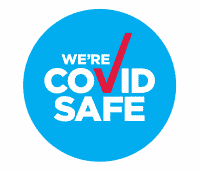
What is the pancreas?
The pancreas is an organ in the abdomen which produces both insulin (needed for control of blood sugar levels) and also digestive enzymes which are needed for the normal digestive processes of the animal. The pancreas is one of the most underrated organs of the body. It is just as necessary as the heart and brain because you cannot live without the pancreas. When the pancreas behaves badly it causes severe disease problems.
What is pancreatitis?
This is a disease where the pancreas becomes inflamed. When this happens it releases its digestive enzymes directly into the pancreas itself and these enzymes start to damage the pancreas.
This results in the symptoms of severe vomiting and abdominal pain. The dog will often have a high temperature, sometimes diarrhoea and the patient can be very severely ill and even die.
Complications include liver problems, diabetes, peritonitis, abscesses and so on.
In cats it is more often a low grade disease causing some vomiting and diarrhoea but not as acute or dramatic as it is in dogs.
What causes it?
This is a difficult question to answer.
The most common factor involved in its development is eating fatty foods.
However, some drugs in some animals will tend to trigger it. Miniature schnauzers are definitely predisposed to the disease and it is most commonly seen in middle aged, overweight dogs.
How is pancreatitis diagnosed?
Clinical signs are obviously the first indicator of pancreatitis but a stomach upset or intestinal obstruction can look similar.
In most cases diagnosis is based on blood tests. Because the pancreas is releasing abnormal amounts of digestive enzymes, high levels of these enzymes may be found in the blood. In addition the dog usually has a high white blood cell count indicating severe inflammation.
Sometimes the blood results are not completely diagnostic so ultrasound or other techniques may be needed.
How is it treated?
The most important part of treatment is to “turn off” the pancreas. The pancreas is stimulated to produce and release digestive enzymes by food and water entering the stomach. So nil by mouth is very important. At the same time the fluid losses from the vomiting and maintenance fluid requirements need to be met. This is by intravenous fluid therapy. In addition, other medications for pain relief, often antibiotics and medications to stop the vomiting may be used as well.
What is the prognosis?
Most dogs who are treated with fluid therapy will recover, and go well. There are some who get such a severe form of the disease that they do not recover or may develop severe complications.
Long Term
This is one of the most important aspects of pancreatitis. In dogs who have had one bout of the disease they are definitely predisposed to have more episodes; so dietary restriction of fat is extremely important. In general, miniature schnauzers should always be on a relatively low fat diet and not be allowed to get overweight.
Conclusion
Sorry for such a boring article but this is a problem disease and we see it quite commonly. Prevention is always better than cure; so not allowing your pet fatty foods or treats may save you from ever experiencing this disease in which case the time you spent reading this was well worthwhile.
by Dr Rosalie








